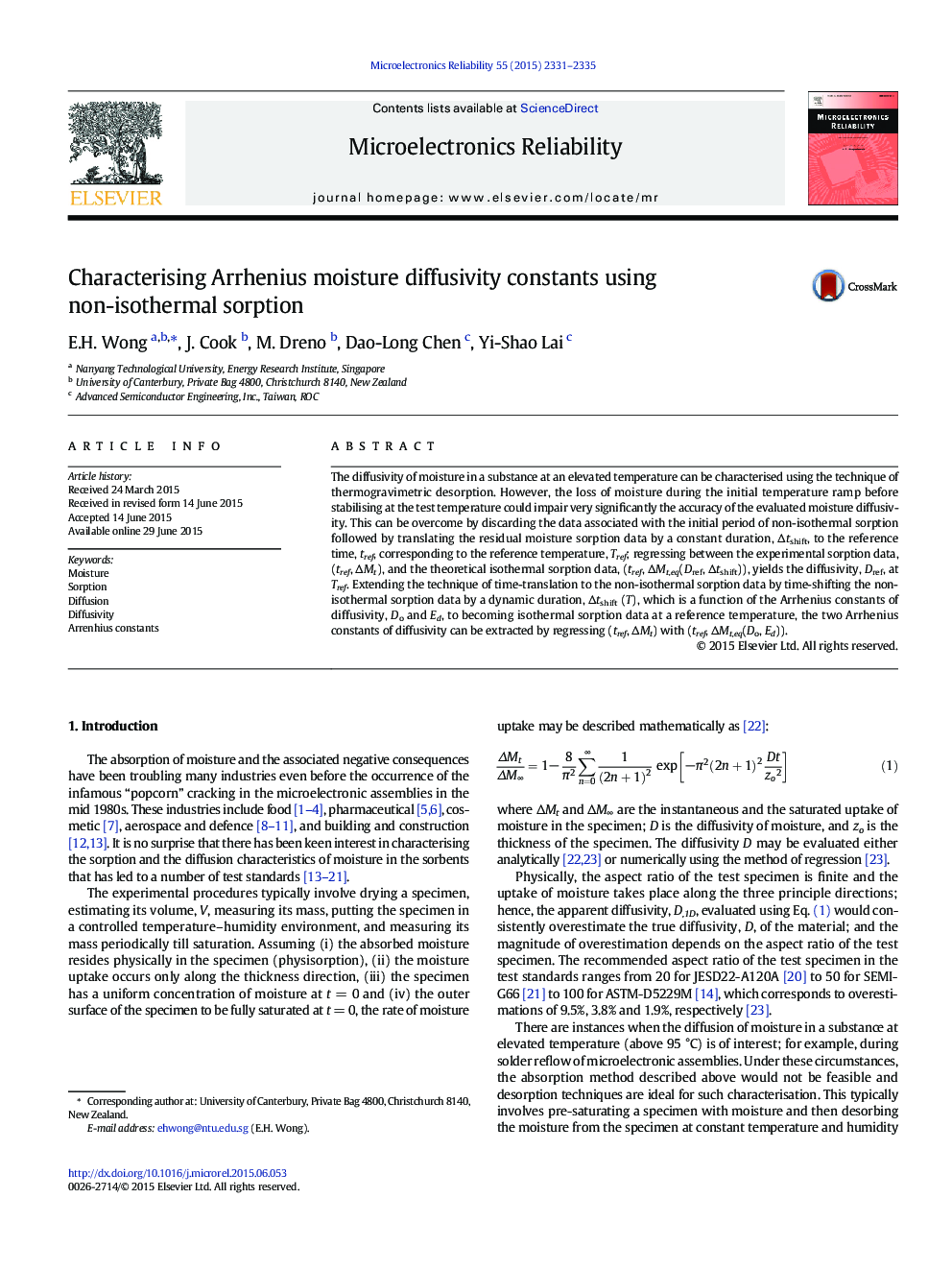| Article ID | Journal | Published Year | Pages | File Type |
|---|---|---|---|---|
| 548944 | Microelectronics Reliability | 2015 | 5 Pages |
•Characterisation of temperature-dependent moisture diffusivity in solids using a single sorption experiment•The characterisation experiment should involve non-isothermal sorption•New numerical scheme using time-shifting has been developed•The new scheme is capable of extracting the Arrenhius constants of moisture diffusivity from a single sorption experiment
The diffusivity of moisture in a substance at an elevated temperature can be characterised using the technique of thermogravimetric desorption. However, the loss of moisture during the initial temperature ramp before stabilising at the test temperature could impair very significantly the accuracy of the evaluated moisture diffusivity. This can be overcome by discarding the data associated with the initial period of non-isothermal sorption followed by translating the residual moisture sorption data by a constant duration, Δtshift, to the reference time, tref, corresponding to the reference temperature, Tref; regressing between the experimental sorption data, (tref, ΔMt), and the theoretical isothermal sorption data, (tref, ΔMt,eq(Dref, Δtshift)), yields the diffusivity, Dref, at Tref. Extending the technique of time-translation to the non-isothermal sorption data by time-shifting the non-isothermal sorption data by a dynamic duration, Δtshift (T), which is a function of the Arrhenius constants of diffusivity, Do and Ed, to becoming isothermal sorption data at a reference temperature, the two Arrhenius constants of diffusivity can be extracted by regressing (tref, ΔMt) with (tref, ΔMt,eq(Do, Ed)).
